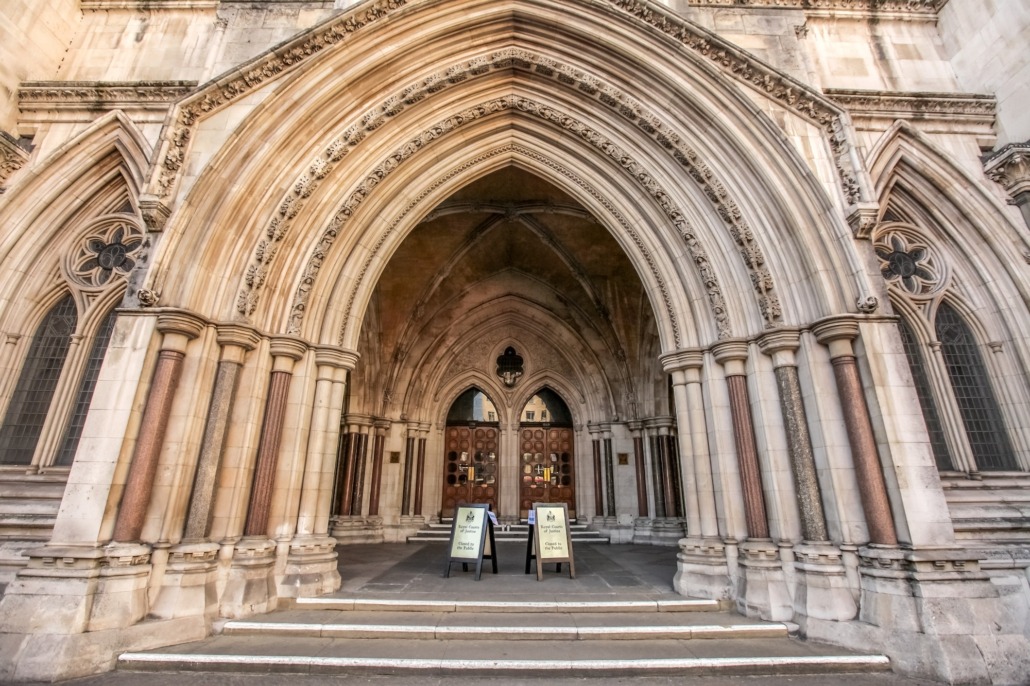Guide to appeal law – Importance of the content of the grounds of appeal for the scope of review by the court of appeal
/in Nicht kategorisiertLEGAL+ NEWS
The view that the content of the grounds of appeal determines the scope of review by the court of appeal is widespread. According to this view, the grounds of appeal must contain all complaints regarding the first instance judgment that the appellant wishes to have reviewed by the court of appeal. If the appellant omits a complaint, this would mean that the court of appeal itself would have to ignore legal violations that it has recognized and deemed to be significant.
This surprisingly widespread view is wrong and – time and again – a reason for the BGH to put a stop to this attempt by many OLGs to get files off the table.

Clarifications by the BGH on the scope of review by the court of appeal
If an appeal meets the statutory requirements, for which it is sufficient that the grounds of appeal contain a single admissible complaint, then the entire substance of the proceedings at first instance will be subject to review by the court of appeal.
In its decision of 28.04.2020 (case no. VI ZR 347/19), the BGH – once again – cleared up this widespread misconception. The reason for this was a ruling by the Higher Regional Court of Munich, which had rejected an appeal that was actually well-founded (!) with the incorrect argument that the appellant had not named the well-founded complaint in question in his grounds of appeal. It was not possible to make up for this in a subsequent pleading. In its decision dated 28.04.2020 (case no. VI ZR 347/19), the BGH commented on this as follows and branded the opinion of the OLG as “manifestly erroneous“:
“(…)
The appeal against denial of leave to appeal is successful and leads to the annulment of the contested judgment and the referral of the legal dispute back to the court of appeal in accordance with Section 544 (9) ZPO. The contested judgment is based on a violation of the plaintiff’s right to a fair hearing under Article 103 (1) of the German Constitution.
- In support of its decision, the Court of Appeal stated, among other things, that there was no room for the hearing of witnesses Z. and G., who had been named in the first instance in the statement of October 29, 2014, as requested in the statement of March 26, 2019, in accordance with Section 520 (3) ZPO. This is because the regional court’s failure to hear the two witnesses was not objected to in the grounds of appeal. Thus, at this stage of the proceedings, there is no longer any room to make up for the evidence that was not taken at first instance.
- The complaint against denial of leave to appeal rightly asserts that the plaintiff’s constitutionally protected right to a fair hearing was violated by the rejection of his repeated request to hear the witnesses Z. and G. in the appeal instance – after expiry of the time limit for filing the grounds of appeal. The non-consideration of a significant offer of evidence violates Article 103 (1) of the Basic Law if it is not supported by procedural law (established case law, see only Senate decision of May 28, 2019 – VI ZR 328/18, VersR 2020, 317 para. 5 with further references). This is the case here because the opinion of the Court of Appeal that there is no room for the examination of witnesses pursuant to Section 520 (3) ZPO is manifestly erroneous (see Senate decision of September 24, 2019 – VI ZR 517/18, VersR 2020, 379 para.
a) If the appeal is admissible, then according to the case law of the Federal Court of Justice, the entire procedural material of the first instance, which is evident from the files, is generally transferred to the appeal instance without further ado (BGH, judgments of March 12, 2004 – V ZR 257/03, BGHZ 158, 269, 278; of March 19, 2004 – V ZR 104/03, BGHZ 158, 295, 309; of September 27, 2006 – VIII ZR 19/04, NJW 2007, 2414 para. 16). Accordingly, submissions that were not rejected at first instance become part of the proceedings at second instance without further ado; in principle, there is no need for a new submission in this respect (Senate decision of September 24, 2019 – VI ZR 517/18, VersR 2020, 379 para. 8). The court of appeal must take into account all specific indications that cast doubt on the accuracy or completeness of the factual findings, which have their basis in the submissions of the parties at first instance, even if the appellant has not made the ignoring of this submission the subject of an appeal. If the court of appeal notices, for example when examining other complaints on appeal, that the court of first instance has ignored a fact that is important for the assessment of evidence or a significant offer of evidence, then even without a complaint to this effect, there are concrete indications of doubt as to the correctness of the findings that are relevant to the decision, which oblige the court of appeal pursuant to Section 529 Para. 1 no. 1 half-sentence 2 ZPO (Federal Court of Justice, judgment of March 12, 2004 – V ZR 257/03, BGHZ 158, 269, 279).Nothing else results from the commentaries on Section 520 (3) ZPO cited in the appeal judgment (Reichold in Thomas/Putzo, ZPO, 39th edition, Section 520 para. 23; Heßler in Zöller, ZPO, 32nd edition, Section 520 para. 41). This is because Section 520 (3) sentence 2 ZPO and the commentaries on this only concern the content requirements to be placed on the grounds of appeal. However, if even one complaint meets these requirements, the appeal is admissible – in relation to one and the same matter in dispute. According to the aforementioned case law, the duty of the court of appeal to examine the case also extends to other specific indications of doubt as to the accuracy and completeness of the factual findings. (…).
Conclusion
In the interests of his clients, every lawyer is well advised to always have this case law of the Federal Court of Justice to hand if a Higher Regional Court – once again – attempts to “dismiss” an appeal on the grounds that the grounds of appeal were limited to a specific point of attack that did not apply in the specific case.
Please also read my contribution on the often unjustified rejection of party submissions by the courts of appeal!


LATEST ARTICLES

Expert witness biased – can the court still use existing expert opinion?
In a ruling of practical relevance, the Federal Court of Justice clarified whether and in which cases the expert opinion of an expert declared to be biased may be used by the court.

Brief overview: Hague Convention on the Recognition and Enforcement of Foreign Judgments (“Hague Convention”)
LEGAL+ NEWS Brief overview: Hague Convention on the Recognition and

Enforcement of international jurisdiction agreements: What to do in the event of an action from abroad despite an exclusive jurisdiction agreement to the contrary?
In order to avoid costly and unpleasant legal disputes abroad, it is advisable to conclude exclusive jurisdiction agreements with foreign business partners which stipulate that only German courts have jurisdiction. However, it is not uncommon for the business partner to file a lawsuit in their own country in the event of a dispute, contrary to the jurisdiction agreement. In such cases, the question arises: What can be done to enforce international choice of court agreements?
CONTACT

+49 (40) 57199 74 80
+49 (170) 1203 74 0
Neuer Wall 61 D-20354 Hamburg
kontakt@legal-plus.eu
Benefit from my active network!
I look forward to our networking.
This post is also available in: DE

